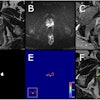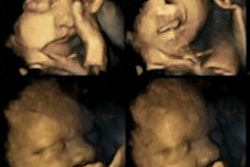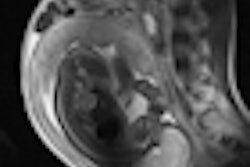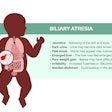Ultrasound has shown that the walls of the aorta are already thickened in babies born to mothers who are overweight or obese, which may explain how these mothers increase their child's risk of subsequent heart disease, according to a study online in the Fetal and Neonatal Edition of Archives of Disease of Childhood (28 February 2013).
The arterial thickening, which is a sign of heart disease, is independent of the child's birth weight, a known risk factor for later heart disease and stroke, according to a team led by senior author Dr. Michael Skilton of the University of Sydney, Australia.
The researchers studied 23 women with an average age of 35 and a body mass index (BMI) ranging from 17 to 42. A BMI greater than 25 was defined as overweight or obese. High-resolution ultrasound of the abdominal aorta was performed on the neonates using a commercially available ultrasound scanner (M-Turbo, SonoSite). Intima-media thickness ranged from 0.65 mm to 0.97 mm, and was associated with the mother's weight, according to the authors.
The researchers noted the higher the mother's weight, the greater the baby's intima-media thickness, irrespective of how much the baby weighed at birth. The difference in intima-media thickness between babies of overweight and normal-weight mothers was 0.06 mm.
Since intima-media thickness is considered the best noninvasive measure of structural health of the vasculature in children, this may explain how an overweight mother might affect her child's subsequent risk of heart disease and stroke in later life, the authors concluded.



















